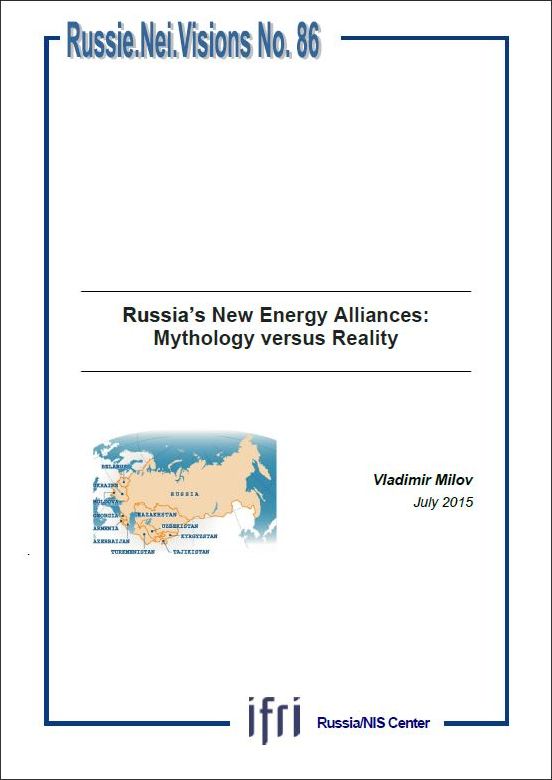Russia’s New Energy Alliances: Mythology versus Reality

This brief paper analyzes the energy relations between Russia and its “new” energy partnerships – with China and Turkey – that the Kremlin tends to publicly promote as an alternative to energy relations with the West.
The past 12 to 15 months have been marked by intensive negotiations, summits, and memorandums of understanding between Russia and these “new” partners. However, the progress is insufficient to merit talk about relationships of a truly global scale, and the many problematic issues indicate that these partnerships are working to only a limited extent. An examination of the Sino-Russian and Turkish-Russian partnerships shows that neither of these new strategic partners is ready to engage in Russia’s globally oriented energy games – instead they want to pursue their own pragmatic energy interests. The Russian attempts to instigate tectonic shifts in the energy markets through partnerships has failed, and both the “Power of Siberia” and “Turkish Stream” projects are rapidly turning into very localized bilateral stories, which are not truly significant in the context of a broader market picture.
Vladimir Milov is a Russian politician, publicist, economist and energy expert. He is a former Deputy Minister of Energy of Russia (2002), adviser to the Minister of Energy (2001–2002), and head of the strategy department at the Federal Energy Commission, the natural monopoly regulator (1999–2001), and founder and president of the Institute of Energy Policy, a leading independent Russian energy policy think tank (since 2003).
Download the full analysis
This page contains only a summary of our work. If you would like to have access to all the information from our research on the subject, you can download the full version in PDF format.
Russia’s New Energy Alliances: Mythology versus Reality
Related centers and programs
Discover our other research centers and programsFind out more
Discover all our analysesThe Caspian Sea as an Emerging Energy Hub : Potentials and Limitations
This report analyzes the prospects of the Caspian Sea region — and its key actors except for Russia and Iran — becoming an important energy hub serving the needs of the European Union (EU).
The European Union's Strategic Test in Georgia
The political crisis brewing in Georgia is of an existential nature for the country. What is at stake is Georgia's future as a democratic and sovereign European nation (EU).
Commanders of Putin's Long War: Purged, Reshuffled and Disgruntled
The trend of reshuffling the Russian top military command in the course of a fast-evolving and far from successful war has progressed unevenly both across the Armed Forces’ structures and in time. The rationale for and timing of the abrupt cadre decisions made by Commander-in-Chief Putin often defy logical explanation, and the rare official clarifications are no more informative than the usual information blackout.
Russian Military Manpower After Two and a Half Years of War in Ukraine
In addition to a military victory in Ukraine, the Russian leadership is planning to build up sizable troop formations for a possible conflict with NATO in the Baltic region and the Kola Peninsula. In particular, current plans aim for the military manpower to grow by about 350,000, reaching a total of 1.5 million soldiers and commanders. In the context of the current conflict in Ukraine, this cannot be accomplished without a new wave of mass mobilization.









